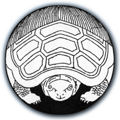“The “emptiness” in the new book’s title is not nihilism or despair. It’s tied to the Buddhist teaching that the isolated, independent self is a fiction. Ozeki, who became a Buddhist after her father died and a priest in 2010, describes Zen ideas of selfhood this way: ‘Imagine the ocean and then this little wave, you know, sort of pops up and looks around and it’s like, Whoa, look at me! I’m a self; I’m a wave; this is fantastic. There’s this ocean around me, but I am a wave. And then suddenly, the next thing you know, the wave is just part of the ocean again.’”
September 14, 2021
Vulture, New York Magazine
Ruth Ozeki, Amplifier - Her latest novel teems with voices, most of them belonging to what she might call "nonhuman persons."
